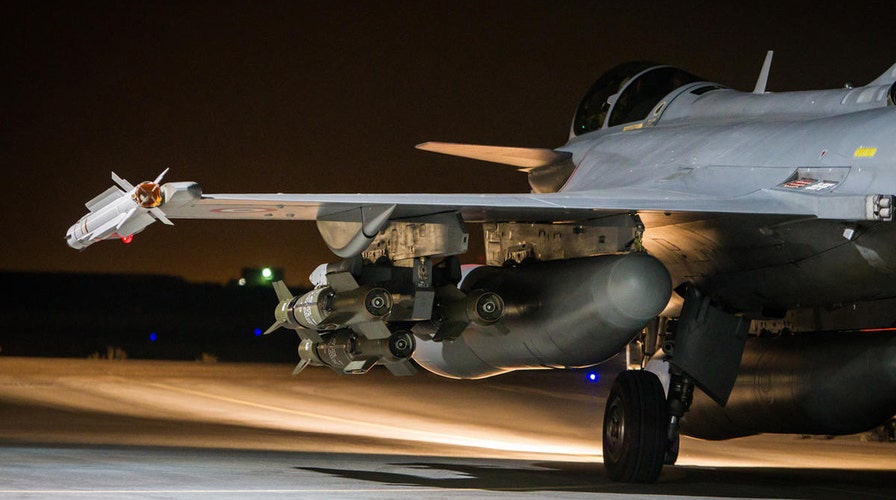Are stepped-up airstrikes enough against ISIS?
Former combat pilot Rep. Martha McSally goes 'On the Record' on France and Russia intensifying airstrikes against ISIS and whether they are effective in winning a war against the terror group
Long-range Russian supersonic bombers carried out more daylight strikes against the Islamic State in Syria early Wednesday according to a senior defense official briefed on the latest intelligence from the region.
Russia’s use of large bombers marks the first time this type of aircraft has flown against ISIS. Since Russian airstrikes began in Syria on Sept. 30, the Russians have preferred to strike during the daytime, while the U.S. military and French launch their strikes under the cover of darkness at night.
“This is one of the reasons, why de-confliction is not really needed at this time,” said a U.S. official monitoring the Russian strikes. “The Russians are bombing during the daytime, the [U.S.-led coalition] is bombing at night.”
The large supersonic Russian bombers, which included Tu-22M Backfire and Tu-160 Blackjack bombers, flew from airbases bases in Mozdok and Engels, Russia. Older Tu-95 Bear bombers also flew out of Engels.
The Russian bombers which flew from Engels launched cruise missiles against the Islamic State from a position over Iran, according to a U.S. official.
Mozdok is located in southern Russian near Georgia and Azerbaijan. Engels, named after the co-founder of Marxist theory, German philosopher Friedrich Engels, is located north of the Caspian Sea, 115 miles from neighboring Kazakhstan.
Each Backfire bomber is capable of dropping nearly 70 unguided 500-pound bombs at a time. A bomb damage assessment is currently underway, but at this time it is unclear if the Russian strikes have been successful in killing large numbers of ISIS fighters.
Throughout their air campaign, the Russians have been bombing ISIS using un-guided “dumb” bombs, which require daylight hours to have any chance of successfully hitting a target, according to a U.S. military pilot.
Many senior military and administration officials have said the fight against the Islamic State could take years. Over the summer, the Army’s outgoing top general said defeating ISIS would take 10-20 years.
Not so, according to retired Air Force General David Deptula, who was responsible for directing the air war over Afghanistan in 2001 and led efforts to enforce Iraq’s “no-fly zones” in the 1990s.
“You keep on hearing people including the president saying, 'This is going to take a long time.' It's only going to take a long time if you want it to take a long time. We have it within our capacity to shut down the effectiveness of the Islamic State in a very short period of time--in a matter of weeks and not years,” said Deptula.
Before the Paris attacks, President Obama called ISIS largely contained. His former Defense Secretary, Leon Panetta, seems to disagree.
“It isn’t about containment. It is about defeating ISIS. I think if there’s anything we ought to understand from these last events, it’s that we have to go to war against this brutal enemy,” said Panetta in an exclusive interview with Fox News’ Neil Cavuto Tuesday.
Panetta later echoed French President Francois Hollande calling the Paris attacks “acts of war."
Russian president Vladimir Putin spoke by phone Wednesday with Egyptian President Abdul Fattah el-Sisi and agreed to improve airline security between the two countries, according to a statement from the Kremlin, in a sign of growing cooperation against terrorism between the two countries following the downing of a Russian airliner in Egypt’s Sinai killing all 224 people onboard.
Russia’s FSB security service said it was certain a bomb took down the plane. ISIS has claimed responsibility for the attack.

